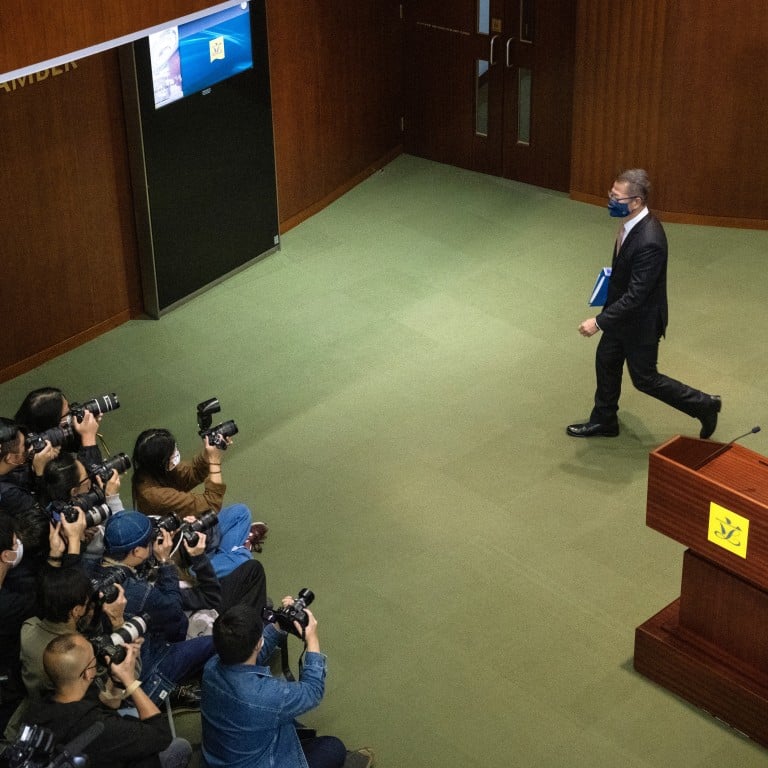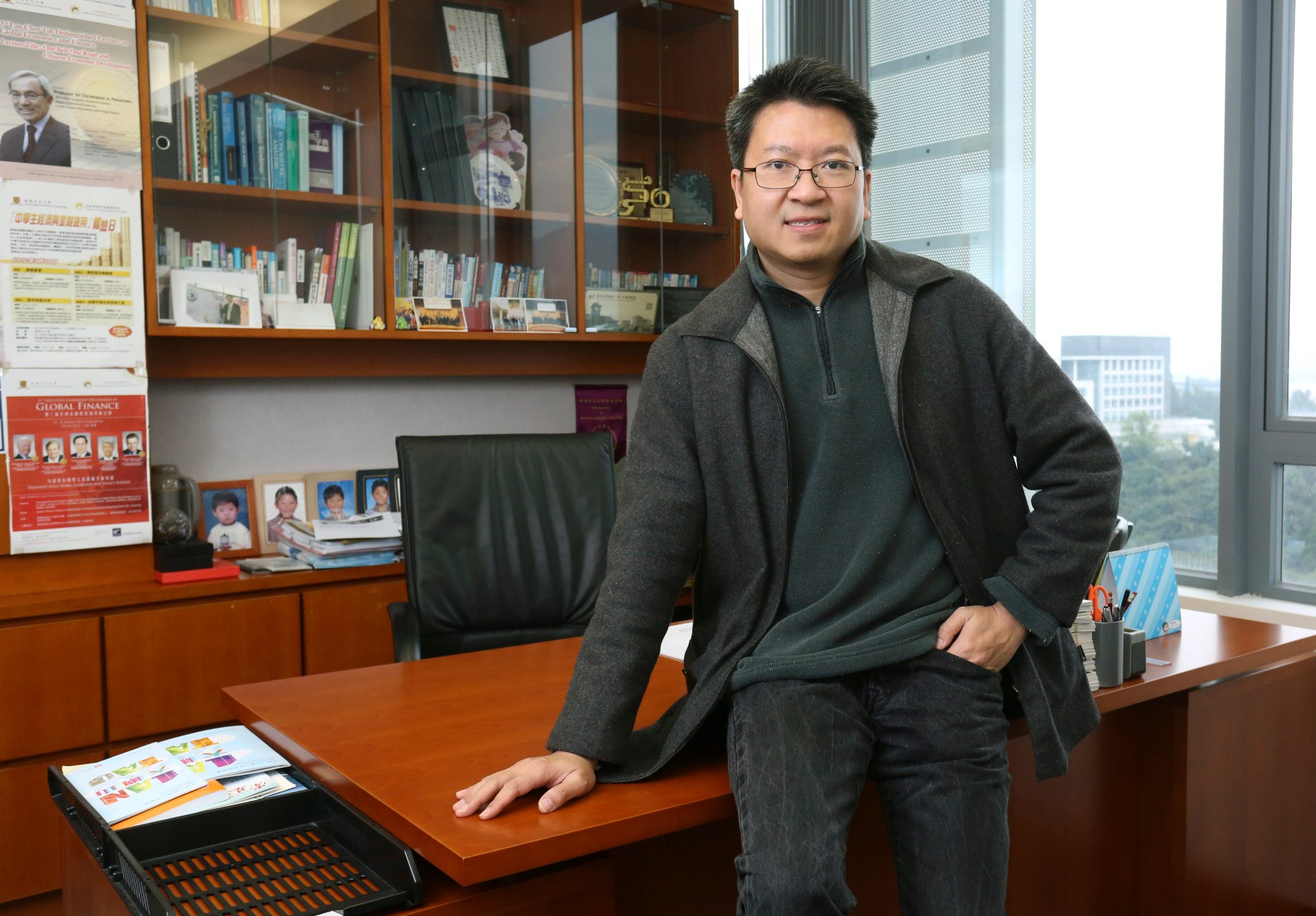
Budget 2023-24: is Paul Chan making the right economic bets for Hong Kong and is he kicking the can down the road on raising taxes?
- Financial Secretary Paul Chan has laid out plans for fresh sources of growth and revenue, but experts warn ambitious goals will take time to bear fruit
- Economists also call on government to take tough steps to widen tax base, while others worry about administration’s debt burden in high interest rate environment
Experts who talked to the Post also had divergent views on Chan’s plans to issue infrastructure and green bonds to generate more capital, with some praising his shift in public financing philosophy, while others worried about the administration’s debt burden in a high interest rate environment.

Giving the first budget speech in the aftermath of the Covid-19 pandemic, Chan began by pledging a “clear direction ahead and specific goals in mind” to pursue the city’s economic growth vigorously and moving to “high-quality development”, a term repeatedly used in China’s 20th Communist Party congress last year.
Chan then read lengthy paragraphs underscoring the importance of medium-to long-term drives on innovation, green technology, digital economy and internet infrastructure development, through investment of billions on universities and research institutes, and frontier technology fields such as artificial intelligence and quantum tech.
Despite a larger than expected deficit, reaching HK$139.8 billion (US$17.8 billion) in 2022-23 and HK$54.4 billion the following year, Chan did not propose new sources of recurrent tax income as widely expected, but opted to sharply raise tobacco taxes and clawed an annual HK$2.4 billion special football betting duty from the city’s sole gambling operator for the next five years.
Hong Kong earmarks billions to drive innovation and technology industry
The financial secretary revealed he had considered increasing profits and salaries taxes, but decided against the move, despite the two being major sources of government revenue.
“Enterprises and individuals faced huge pressure during the economic downturn in the past few years, and I hope at least they can take a break this year,” he said.
The minister also focused on the issuances of bonds for more capital, while driving on the minimised expenditure on anti-epidemic measures.
Executive Council convenor Regina Ip Lau Suk-yee praised the vast amount of resources the government was set to pour into boosting “high-quality development”, which she saw as “crucial” in steering the city’s economic growth in the long run.
“I think the recovery will be quicker than we all think … especially as the government is now focusing more on the digital transformation of our economy,” she said.
‘Happy Hong Kong’: 6 takeaways from Paul Chan’s budget 2023-24
But Terence Chong Tai-leung, an associate professor of economics at Chinese University, said Hong Kong could hardly rely on I&T as a major pillar for economic growth in the coming decade, as the city was still in the preliminary stage of such development.
“It is like gambling without clear results. Hong Kong for now has not had eye-catching innovations, not to mention whether we have enough talent,” the scholar said. “It might take a decade and we could still fail to bring 5 per cent of economic growth from I&T development.”

Chong said the government had been adopting the motherland’s narrative on “high-quality development”, without a clear picture on its chances of success. Instead of forging a new engine, Chong suggested the city should focus on its existing edge in finance and services.
Agreeing, economist Andy Kwan Cheuk-chiu, director of the ACE Centre for Business and Economic Research, also said the city should ride on the existing markets, such as tourism and finance, for economic recovery in the post-Covid-19 period.
“I would not say green finance and artificial intelligence development are doomed to fail, but it takes time and has to depend on whether the city could rely on the motherland’s paths for opportunities, given the geopolitical uncertainties,” he said.
Kwan also said while he understood that the government might want to alleviate the public’s burden for now, it still had to source more streams of income in the next financial year through widening the tax base. It could do this by having a direct betting tax or even a sales tax, instead of focusing on bond issuances.
“Issuing bonds at a time of high interest rates might create extra burdens for the government in the future,” he warned.
Hong Kong finance chief plans to issue infrastructure bonds and sell them to public
He was referring to Chan’s proposals to enable the issuance of infrastructure bonds and explore the possibility of selling them to the public, alongside silver and green bonds.
At a press briefing after his speech, Chan said the debt from the potential bond scheme would remain at “a very safe level”, projected to reach 9.5 per cent of gross domestic product in the 2027-28 financial year.
Vera Yuen Wing-han, a University of Hong Kong (HKU) lecturer in economics, supported the idea. She saw it as a chance to grow the “underdeveloped” bond market in Hong Kong, and she expected that the potential infrastructural bond products could satisfy investment needs of institutional investors, including sovereign and pension funds.
The scholar agreed that geopolitical risks might derail the city’s long path of sourcing new engines of growth, for example, the possible sanctions enacted against the city on the transfer of technologies amid tensions between China and the United States.
But Hong Kong still played a unique, strategic role, considering that a lot of the transfer of technologies “have been done without being monitored”, she added, while praising the government’s “proactive” plans of allocating HK$100 million for attracting more family offices to Hong Kong over the next three years.
“Hong Kong used to be a facilitator of business in the colonial times and nowadays they have become more interventionist, and utilise the advantage of China’s growth.”
Franklin Lam Fan-keung, former executive councillor and founder of HKGolden50, said he was pleased to see the administration actively “drawing on all the tools in his toolbox and inventing more” to boost structural growth and revenues, but he felt one area was being overlooked.
That was the long-term investment on “human capital”, he said, considering the huge mobility of global talent and that the local labour force had shrunk significantly by about 140,000 over the past two years amid an emigration wave.
“We are already falling behind,” he said. “We desperately need to fill in a large number of talent to support our ‘high quality’ growth of the knowledge-driven digital economy,” he said.



